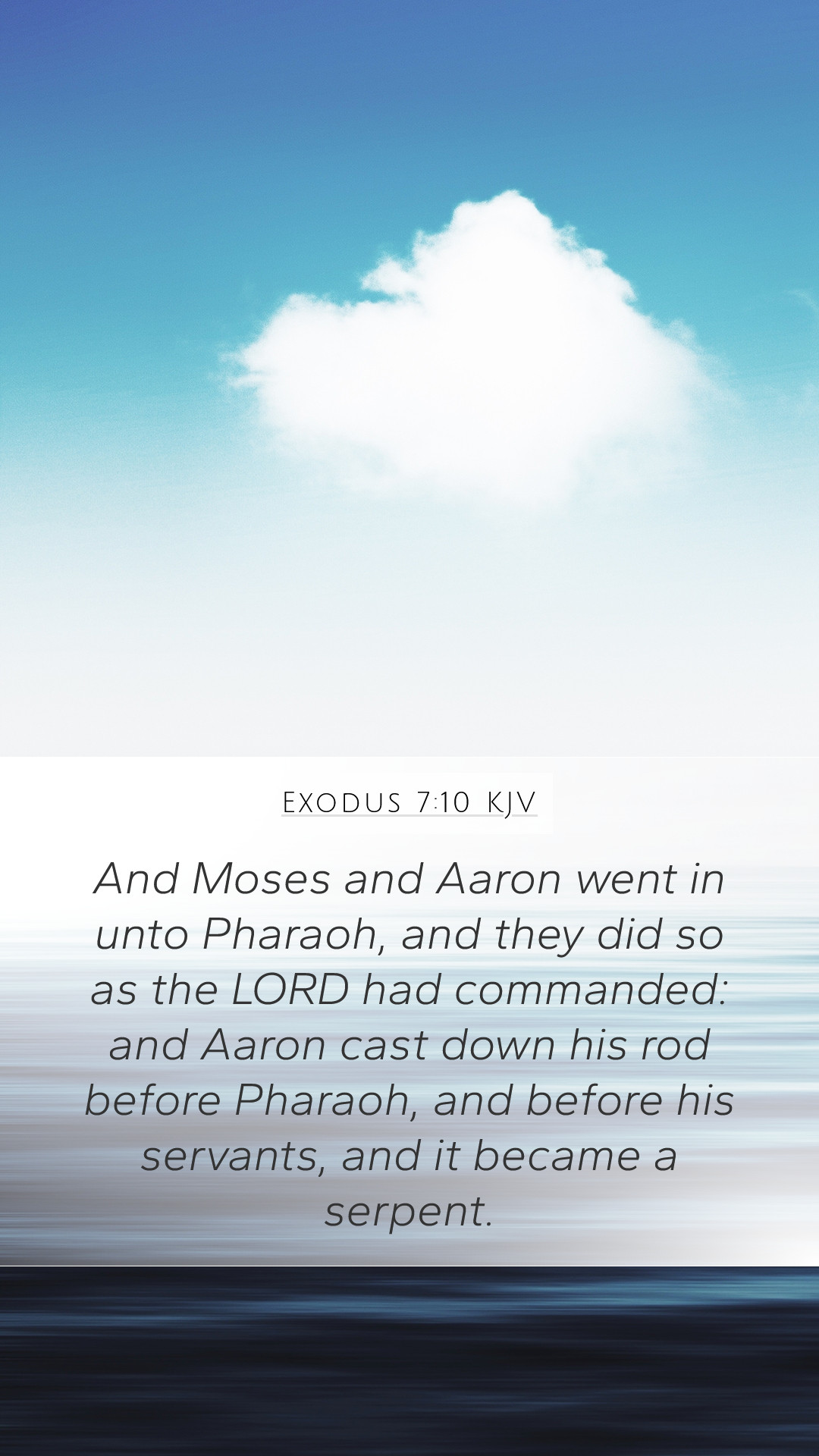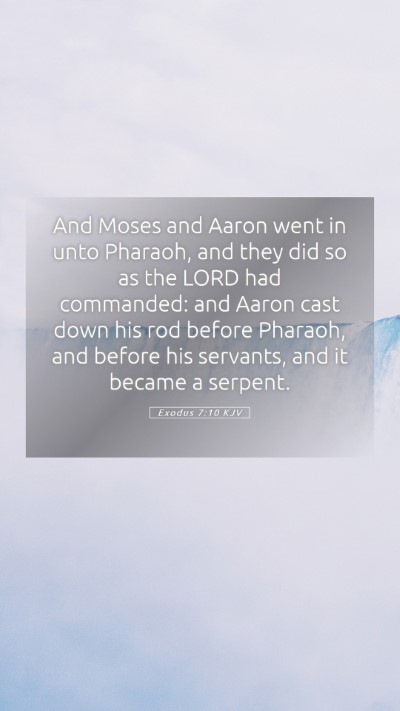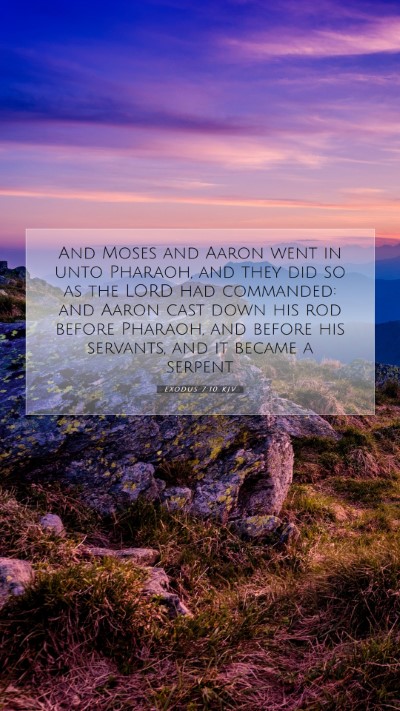Understanding Exodus 7:10
Scripture: Exodus 7:10 - "And Moses and Aaron went in unto Pharaoh, and they did so as the LORD had commanded: and Aaron cast down his rod before Pharaoh, and before his servants, and it became a serpent."
This verse marks a significant moment in the narrative of the Exodus, as it showcases the divine authority given to Moses and Aaron in their mission to confront Pharaoh regarding the liberation of the Israelites. The act of Aaron casting down his rod and it transforming into a serpent serves multiple theological and interpretative purposes, as gleaned from various public domain commentaries.
Bible Verse Commentary
1. Authority of Moses and Aaron
Matthew Henry emphasizes the obedience of Moses and Aaron, highlighting that they acted according to the command of the LORD. This obedience is critical as it underscores the divine direction that both leaders are following, reinforcing that their actions are not self-motivated but are acts of faith in God's word.
2. The Symbolism of the Serpent
According to Albert Barnes, the rod turning into a serpent symbolizes power and authority over Pharaoh, illustrating God’s supremacy over Egyptian gods who were often depicted as serpent-like creatures. The transformation demonstrates God's ability to intervene in the natural order, showcasing His might to both Pharaoh and his servants.
3. Resistance to God's Command
Adam Clarke provides insights on the typical resistance encountered in spiritual leadership. The conversion of the rod into a serpent serves as a sign and wonder intended to challenge Pharaoh’s hardened heart and the false security of Egyptian magic. This is an early indication that Pharaoh's defiance will have serious consequences, setting the stage for upcoming plagues.
In-Depth Analysis
Understanding this verse involves considering not just the immediate event, but the broader theological implications. God's command to cast down the rod illustrates themes of faith, authority, and the stark spiritual battle between the God of Israel and the gods of Egypt.
Biblical Exegesis and Context
- Historical Context: The setting of Exodus is pivotal in understanding the Israelite plight and God’s desire for liberation.
- Theological Implications: This act signifies God’s power over creation and His authority as the ultimate leader of His people.
- Literary Structure: The miraculous transformation supports the narrative structure of Exodus, which is filled with signs and wonders revealing God's nature.
Application of the Verse
This passage invites believers to consider their own obedience to God's commands and the authority that comes with that obedience. It challenges us to reflect on how we respond to God's callings in our own lives.
Teachings for Modern Life
- Trust and obey God's directives, even when confronted with seemingly insurmountable challenges.
- Recognize the power of God in transformative moments of our lives.
- Understand that confrontation with worldly authorities may be necessary in asserting God’s truths.
Cross References
- Exodus 4:3 - The sign of the rod turning into a serpent presented to Moses.
- Exodus 7:12 - The magicians of Egypt also perform similar signs, illustrating the battle between God's power and earthly magic.
- 2 Timothy 3:8 - Reference to Janes and Jambres who resisted Moses, reflecting the conflict between truth and falsehood.
Conclusion
This exploration of Exodus 7:10 reveals profound themes of divine authority, obedience, and the spiritual warfare inherent in God's redemptive plan. It invites ongoing reflection and application within the context of Bible study groups, online Bible study resources, and personal spiritual growth. Understanding Scripture requires not just reading but an engagement with its meanings and implications through the lens of various biblical commentators.


